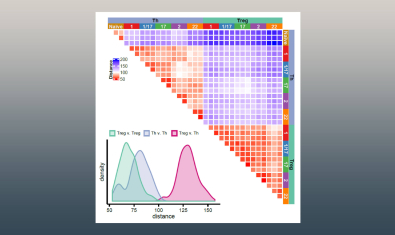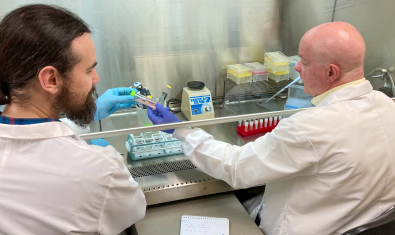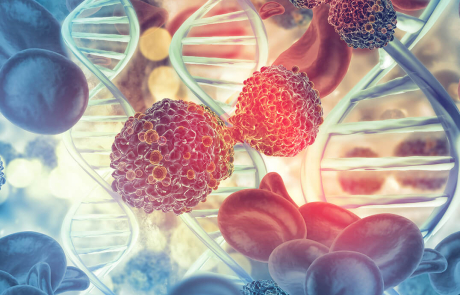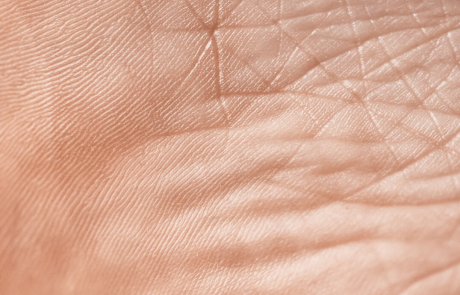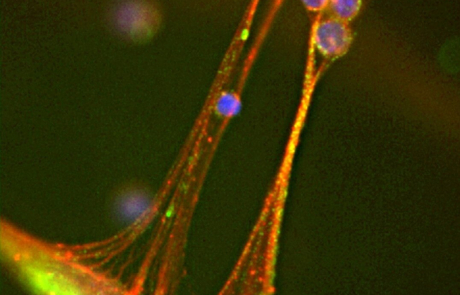Scleroderma: Disease Overview
Scleroderma is an autoimmune disease that affects the connective tissues of the skin and other organs. This disease can be tricky to diagnose and difficult to treat, but BRI scientists are working to change that.
Our research focuses on better understanding immune cells in the skin and learning what goes wrong in skin diseases like scleroderma. We work closely with Virginia Mason Franciscan Health to study samples from people with scleroderma, other skin diseases, and healthy controls to accelerate our progress toward better treatments and cures. Understanding how the immune cells function in the skin during disease could also be important in learning how other organs are impacted, such as the lungs — a major unsolved problem in scleroderma.
What Is Scleroderma?
Scleroderma means “hard skin.” It is an autoimmune disease, which means it happens when the immune system mistakenly starts attacking healthy tissue. In scleroderma, people experience hardening and tightening of the connective tissue in the skin that may be painful, uncomfortable or itchy. In some people, scleroderma may affect other parts of the body as well. There are two types of scleroderma:
- Localized scleroderma, which typically only affects the skin. People with this type of scleroderma may experience discolored patches on their skin or areas where their skin feels stiff and hard.
- Systemic scleroderma, where people experience hardening and thickening of tissue in the skin and other areas of the body, including the muscles, joints and internal organs, such as the gut, heart and/or lungs.
What Causes Scleroderma?
Scleroderma happens when the immune system acts out of turn. When a person has an injury like a cut, the immune system produces inflammation to fight off infection and creates new tissue to heal the wound. In scleroderma, the body’s healing process is in overdrive. This can create extra scar tissue and make the skin feel thick, tight and hard.
Scientists are still working to learn exactly what causes scleroderma and why the disease is so highly variable from person to person. Genetics play a role in scleroderma, although it does not usually run in families. Many people who have scleroderma have a family member with another autoimmune disease like lupus or rheumatoid arthritis.
What Research Is Being Done in Scleroderma?
Our scleroderma research includes:
- Examining how immune cells in the skin learn to protect the body and how that process goes wrong in autoimmune disease.
- Studying how genetics might make a person more susceptible to skin diseases like scleroderma and psoriasis.
- Learning how the skin microbiome and the immune system interact and how that process goes wrong in disease.

